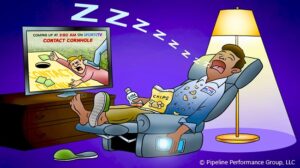How Exercise Affects Sleep
When I was a teenager, my best friend’s family had a lake house with a dock and a boat. She and I would spend hours jumping off the dock, swimming, skiing, and laughing until our sides ached. As the sun started to drop low in the summer sky, we made our way back to the house for dinner. We were famished from all the fun and sun! Her sweet mom never failed to have more than enough grilled steak, vegetables and ice cream to fill our bellies. Days like that were always followed by the best night’s sleep.
Now that we are all grown up and operating in the work-a-day world, does the “best ever” night’s sleep have to be a distant memory? As responsible adults, the daily pressures we face can significantly raise the level of cortisol, a stress hormone, in our blood stream and set our teeth on edge. High cortisol levels interfere with the release of melatonin, the hormone that helps us to relax and to fall asleep. Elevated cortisol levels, and poor sleep habits combine their negative forces to contribute to the problem of weight gain.
No matter what your age or the challenges you face, there is hope for a better night’s sleep! Exercise improves the quality of sleep. When you sleep better, you have more energy for exercise. Goodbye to that excess weight gain! Regular exercise can start a cycle of benefits for you in a short amount of time.
A simple twenty-minute walk can relieve stress and enhance the periods of slow-wave sleep that is the deepest, most restorative stage. Daily movement is very effective at reducing mental fatigue, improving alertness and concentration, and enhancing overall cognitive function.
Sleep is the perfect balance to a full day’s work. How might your work and your rest improve if you invest a little time each day to relieve mental tension, work-related fatigue, muscle stiffness, and pain? Even moderate physical activity can improve your sleep, help fight disease, and elevate your mood. In other words whether you’re asleep or awake, exercise is beneficial for all of us.
It is best to begin slowly if you have been inactive for a while. Slow and steady wins the race. Here are some examples of moderate exercise and a suggested amount of time to help you set goals. Choose one you like and begin at your own pace. You will sleep better and feel energized.
- Playing pick-up basketball for 20 minutes
- Walking stairs for 10 minutes
- Gardening for 30-45 minutes
- Walking two miles in 30 minutes
- Yoga for 30-45 minutes
- Swimming laps for 30 minutes
- Biking five miles in 45 minutes
- Dancing for 30 minutes
- Washing your car for 45 minutes
- Raking leaves for 30 minutes
- Playing singles tennis for 30 minutes
- Playing volleyball for 45 minutes
MANAGING FATIGUE EDUCATIONAL PROGRAM | Scarlet Knight © 2018 Please Distribute to Others.




